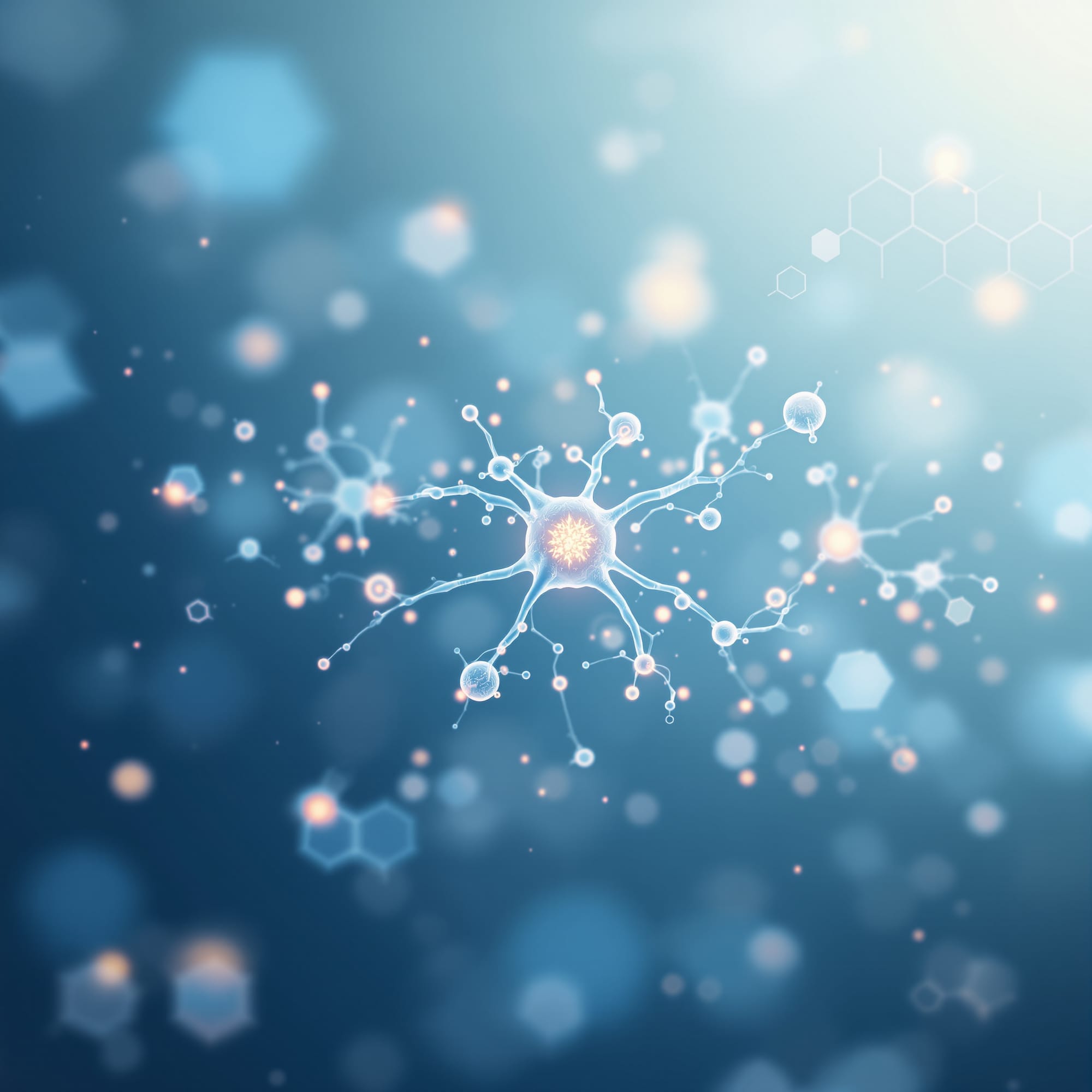Nootropics: Enhancing Cognitive Function with Supplements

Nootropics, often referred to as brain supplements or cognitive enhancers, are substances that aim to improve various aspects of cognitive function, including memory, creativity, and motivation. These supplements, ranging from natural herbs to synthetic compounds, are gaining popularity for their potential nootropic benefits in enhancing cognitive health and productivity.
This comprehensive guide delves into the world of nootropics, exploring popular compounds, their effectiveness, user experiences, and the scientific research that supports their role in cognitive enhancement. Whether you're seeking to boost your study sessions or enhance daily productivity, understanding the nuances of these brain supplements can be incredibly beneficial.
What Are Nootropics: Enhancing Cognitive Function with Brain Supplements? | What are the benefits of nootropics? | How to use nootropics effectively? | What are common mistakes with nootropics? | How Can Nootropics Enhance Your Cognitive Function? | Frequently Asked Questions
What Are Nootropics: Enhancing Cognitive Function with Brain Supplements?
Nootropics, commonly referred to as brain supplements or cognitive enhancers, are substances claimed to improve various aspects of mental functioning, including memory, creativity, and motivation. These compounds can be natural or synthetic and are often used by individuals seeking to enhance their cognitive performance, particularly in high-stress situations or during intense study periods. While many people report beneficial effects from nootropic use, the extent and nature of these benefits can vary significantly between individuals.
For example, popular nootropics such as caffeine and L-theanine are known for their ability to improve focus and reduce the jitteriness typically associated with caffeine consumption. Scientific studies have shown that combining these two compounds can lead to enhanced attention and alertness without the adverse effects. Furthermore, research indicates that the nootropic benefits may also include neuroprotective effects, such as increased brain-derived neurotrophic factor (BDNF), which supports neuron health and reduces cognitive decline over time.
What are the benefits of nootropics?
Nootropics, also referred to as cognitive enhancers, have garnered significant attention for their potential to improve various aspects of brain function. Research indicates that certain compounds within the nootropic category can enhance memory, increase focus, and boost motivation. For instance, a study found that participants who used a specific nootropic showed a 15% improvement in memory recall tasks compared to those who did not use the supplements, highlighting their ability to support cognitive health.
Another significant benefit of nootropic use is the improvement in learning capacity. Compounds like racetam and modafinil have been shown to increase neuroplasticity, which is the brain's ability to form new connections and learn new information. This process is essential for both academic and professional settings, as individuals can adapt more quickly to new challenges and acquire knowledge at a faster rate.
Moreover, nootropics can play a crucial role in stress reduction and overall mental clarity. Adaptogenic herbs commonly found in nootropic formulas, such as Rhodiola Rosea, have been identified in studies to reduce cortisol levels, thereby minimizing the effects of stress on cognitive functions. By managing stress effectively, users may experience sharper focus and enhanced problem-solving skills, crucial for high-stakes environments.
- No significant improvement in memory retention.
- Increased neuroplasticity for better learning.
- Reduction of stress-related cognitive decline.
- Enhanced focus and mental clarity.
- Potential boost in motivation and productivity.
Finally, the collective impact of these benefits results in improved productivity. As users report higher levels of energy and motivation, their ability to complete tasks efficiently increases. For instance, practical applications of nootropics have shown that professionals using these supplements often see a 20% improvement in work performance. This statistic underscores the transformative potential of nootropics in enhancing daily cognitive function and achieving personal and professional goals.
How to use nootropics effectively?
Nootropics, commonly referred to as brain supplements, can significantly enhance cognitive function when used correctly. To maximize the potential cognitive enhancers provide, it’s essential to understand their specific applications and the best practices associated with their usage. Evidence points to various compounds, such as caffeine and L-theanine, showcasing the ability to improve focus and mental clarity when used in synergy. However, the way in which one incorporates these nootropics into their daily routine can greatly impact their effectiveness.
Begin by identifying the nootropic that aligns with your cognitive goals. This may include enhancing memory, focus, or overall brain function. It’s advisable to start with lower doses to gauge your body's response and make adjustments as needed. Additionally, regular breaks from nootropic usage can help prevent tolerance and maintain their effectiveness over time. Research highlights the importance of maintaining a balanced diet, proper hydration, and consistent sleep patterns, as these factors play a crucial role in optimizing cognitive health.
- Research different types of nootropics to identify which ones suit your goals, such as caffeine for energy or rhodiola rosea for stress relief.
- Start with a lower dosage to evaluate your body’s reaction, gradually increasing if needed to find the optimal level.
- Incorporate nootropics into your routine during mentally demanding tasks, such as studying or complex work projects, to enhance focus and productivity.
- Monitor your usage, ensuring to take regular breaks to avoid developing a tolerance, which can reduce the efficacy of the supplements.
- Complement your nootropic intake with a healthy lifestyle, emphasizing nutrition, hydration, and sleep quality, to further enhance cognitive function.
What are common mistakes with nootropics?
When exploring the world of nootropics, many users fall prey to a few key misconceptions. One prevalent mistake is assuming that all brain supplements offer immediate and significant cognitive enhancement. In reality, the effects of nootropics vary widely depending on the compound, dosage, and individual response. Users often expect quick results without considering the time it may take for certain supplements to build up in the system and produce noticeable effects.
Another common error is the neglect of personal health conditions and medications. Certain nootropics can interact negatively with existing health issues or prescriptions, potentially leading to adverse effects. Users may overlook the importance of consulting healthcare professionals before incorporating these cognitive enhancers into their regimen, resulting in harmful consequences.
Additionally, there is a tendency to over-rely on nootropics for improved performance. This mindset can lead to neglecting foundational aspects of cognitive health, such as proper nutrition, regular exercise, and sufficient sleep. Relying solely on brain supplements may create a false sense of security, diverting attention from more holistic approaches to cognitive enhancement.
- Assuming all nootropics provide immediate effects
- Neglecting potential interactions with medications
- Over-relying on supplements instead of a balanced lifestyle
How Can Nootropics Enhance Your Cognitive Function?
Nootropics help individuals enhance cognitive function and productivity through scientifically-backed brain supplements. This guide explored popular nootropic compounds, their effectiveness, and user experiences, highlighting the significant nootropic benefits for mental clarity and focus. Understanding these cognitive enhancers is essential for anyone looking to optimize their mental performance and overall cognitive health.
Throughout the article, we discussed various nootropics such as caffeine, L-theanine, and Rhodiola Rosea, explaining how they support improved memory, concentration, and mental endurance. We also emphasized the importance of maintaining a balanced approach when using these supplements to maximize their positive effects while minimizing potential side effects. For those interested in deepening their knowledge, we encourage you to explore related topics such as cognitive health strategies or the science of brain supplements to further unlock your full mental capacity.
Frequently Asked Questions
What are nootropics?
Nootropics are substances, including both natural and synthetic compounds, that are believed to enhance cognitive functions such as memory, creativity, and motivation. They are often referred to as brain supplements or cognitive enhancers.
Can nootropics improve memory?
Many nootropics claim to enhance memory recall and retention, with varying degrees of scientific support. Compounds like Bacopa Monnieri and Ginkgo Biloba are frequently studied for their potential memory-boosting effects.
How do nootropics affect productivity?
Nootropics may enhance productivity by improving focus, reducing fatigue, and increasing motivation, allowing for more efficient work sessions and better task completion. However, individual responses can vary widely.
Is there scientific backing for nootropic benefits?
While some studies suggest potential cognitive benefits of certain nootropics, research is still developing, and results can be inconsistent. It's important to evaluate each compound's evidence base individually.
What are some popular nootropic compounds?
Popular nootropic compounds include caffeine, L-theanine, Rhodiola Rosea, and Alpha-GPC, each known for their specific cognitive-enhancing properties and user experiences.
Can anyone use nootropics?
While many people use nootropics with the intent to enhance cognitive function, it is essential to consult with a healthcare professional, especially for those with underlying health conditions or those taking medications.
